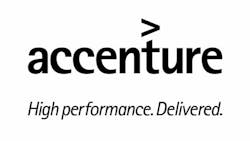While the global economic downturn of 2008 and 2009 affected nearly everyone, some companies bounced back more quickly than others. As Accenture found in its research on North American manufacturers, many companies are positioning themselves to capitalize on current and emerging growth opportunities, with some reporting more progress than others.
In fact, about a third of the companies included in the Accenture sample reported recession recovery progress that outperformed others in the sectors surveyed. The 81 senior operations and manufacturing, supply chain and finance executives represented the automotive, consumer goods, industrial products, and electronics and high tech industries.
Taken together, the recovery leaders demonstrated an ability to create what we refer to as “dynamic operations,” including adaptable structures that typically can enable a company to more swiftly capitalize on opportunities and more deftly manage downside situations. More specifically from our survey data, we identified five characteristics among the “recovery leaders” which we believe helped them rebound more quickly than others who were surveyed.
- Developed stronger talent. More than two-thirds (67%) of the recovery leaders – compared with 37% of non-leaders – said their workforce talent provides strong or very strong support for their operating model. Perhaps not surprisingly, leaders were also more likely to say that they had already rebuilt their manufacturing workforce to pre-recession levels. Companies across the board had made labor more productive, as they more effectively leveraged existing assets and technology investments to improve overall productivity.
- Created a flexible operating model. Recovery leaders also were more likely than non-leaders to consider improving their operating model. Shorter-term leaders were more focused – by 61% to 46 % over non-leaders -- on improving the operating model within manufacturing plants while simultaneously making improvements to the broader manufacturing network. Designing a flexible model that can adapt quickly to market shifts – whether by leveraging variable capacity or moving to a modular infrastructure – may be a critical component of these operating model initiatives.
- Managed the physical network proactively. Recovery leaders were less likely than non-leaders to have started up a new manufacturing location in the 24 months prior to participating in the survey. Recovery leaders that did open new operations tended to do so to take advantage of skills they needed in a specific location (42% to 10%). Companies that can most efficiently manage these transitions and start-ups have the opportunity to reap significant benefits in terms of competitive advantage.
- Aligned manufacturing capacity and capital investment. Recovery leaders did not follow the pack in reducing capacity as demand slowed during the recession; in fact, leaders were less likely than non-leaders to have reduced capacity during the recession and more likely to have increased capacity. When leaders made cuts, they were about twice as likely as non-leaders to report that the reductions actually helped position them to capitalize on emerging growth opportunities (44% versus 23%). Creating more productive workforces and managing operating costs has made labor cost a less significant part of the overall cost equation
- Leadership. Generally, we observed that executive teams in leaders’ companies are more stable and solidified, compared with those among non-leaders.Recovery leaders are less likely to say that executives are the most challenging people to recruit for the workforce (30% versus 43%).
In today’s volatile business environment, designing the appropriate operating model for a manufacturer’s growth strategy is essential. Many companies, however, prioritize the importance of implementing their chosen operating model and of gaining mastery over other “moving parts,” such as leadership and talent. Companies with efficient, flexible and dynamic operations supported by strong talent and stable leadership may be better positioned to control costs while growing revenues and take market share as the recovery continues.
Mark Pearson is the senior managing director who is responsible for the Operations consulting at Accenture, a managing consulting, technology services and outsourcing company.
